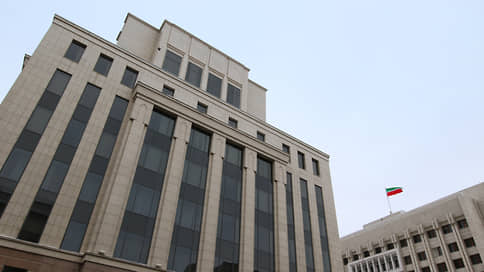The 1870 Urban Self-Government Development Fund ranked the openness of regional parliaments
[ad_1]

The St. Petersburg Fund for the Development of City Self-Government “1870” has compiled a rating of the openness of regional parliaments. The most open, according to experts, was the parliament of the Republic of Tatarstan, also in the top three leaders of the Duma of the Astrakhan region and the regional legislative assembly of Transbaikalia. The researchers note that legislative assemblies are actively using technical capabilities to make their work more transparent. At the same time, there are negative trends associated with “internal openness”: there is a growing inequality in the access of parties to the media and the distribution of leadership positions in parliaments.
The Foundation is conducting the Parliament in the palm of your hand study for the third time (the first two were conducted in 2020 and 2021). The authors studied the parliaments of 85 regions, with the exception of the new territories, where martial law has been introduced, providing for a special mode of operation of the legislature. This year, the Republic of Tatarstan, the Astrakhan Region, the Trans-Baikal Territory took the first places in the parliamentary openness rating. “Over the past year, the State Council of Tatarstan improved eight indicators at once, including organizing live broadcasts of meetings of committees and commissions, placing video archives of meetings of the parliament and its bodies in the public domain, ensuring the publication of submitted documents in machine-readable form, and expanding representation in social networks,” they note. researchers. The Duma of the Astrakhan Region made an “impressive leap” over the year – from 52nd to 2nd place. The Parliament of Transbaikalia “traditionally occupied positions among the locomotives of the rating”, but for the first time entered the top three. Moscow is in 12th place, although in 2020 and 2021 it occupied the first and second lines, respectively. The outsiders of the rating were the republics of Kabardino-Balkaria, Tuva and Altai. “The data we have obtained point to the formation of a “support frame” in the Volga, Central and Siberian macroregions, where conglomerates of regional parliaments—leaders of openness—are formed,” the researchers note.
Experts have identified a trend towards openness: the presence of parliaments in social networks is growing, an increasing number of them are broadcasting plenary sessions on the Internet, publishing transcripts, texts of submitted and adopted bills. The authors, as in previous studies, assess the correlation of openness and budgetary expenditures for the maintenance of the parliament: “Openness requires budgetary funds for the introduction of electronic services, training of specialists, and external audit. However, objective data show that parliaments with significant spending are not always open to their voters and taxpayers, and, conversely, parliaments with modest budgets often show examples of openness and accessibility for voters.”
Researchers consider the availability of broadcasting of plenary sessions, as well as committees and commissions, the availability of video archives on the official website, the publication of transcripts, voting results and draft agendas as criteria for openness in decision-making. In order to assess the openness of legislative work, the experts examined the publication of introduced and adopted bills and information about the stages of work on them. Feedback was also assessed through various channels – telephone, e-mail, through the electronic form of the parliament itself. The researchers note that on the day of the appeal, electronic forms were available on the websites of 74 regional parliaments, but only 29 of them fully complied with the requirements of the law “On the Procedure for Considering Appeals from Citizens of the Russian Federation”. Only 15 parliaments gave specific answers to the question posed within a month period specified by law. “There are excessive requirements for appeals, the functions of services have not been debugged, and prohibition models of response to citizens’ requests remain,” the authors say.
But the appeal of the voter by telephone is available in 77 regional parliaments. Experts note the high technical level of work with oral appeals: in 70 cases they managed to get through on the phone of the first choice on the first try, “specialists from 59 parliaments spoke in a polite tone.” At the same time, in some parliaments, the phone was not published on the official website (Krasnodar Territory), worked to receive faxes (Altai, Komi) or did not answer during the entire experiment (Kabardino-Balkaria, Kaluga and Lipetsk regions, etc.). The “social accessibility” of parliaments was also studied – information about the personal reception of citizens by deputies and the presence of an account in social networks.
The researchers also found negative trends. Thus, parliaments have generally become less responsive to citizens’ written appeals by e-mail. At the same time, the speed of responses increased. Not all is well with the so-called internal openness: the representation of factions in the leadership of parliaments has decreased, the situation with inequality in the presence of parties in the media has worsened.
“Regional parliaments are increasingly turning from competitive platforms into platforms for legislative support of the executive branch,” explains political scientist Ilya Grashchenkov. “If there used to be a governor’s struggle for influence in the legislature of their region, now for the most part governors are managers of places, positions, committees. The independence of legislative assemblies is declining, gradually they are becoming more of a service structure than a polemical platform on which the interests of citizens are really represented.”
[ad_2]
Source link








